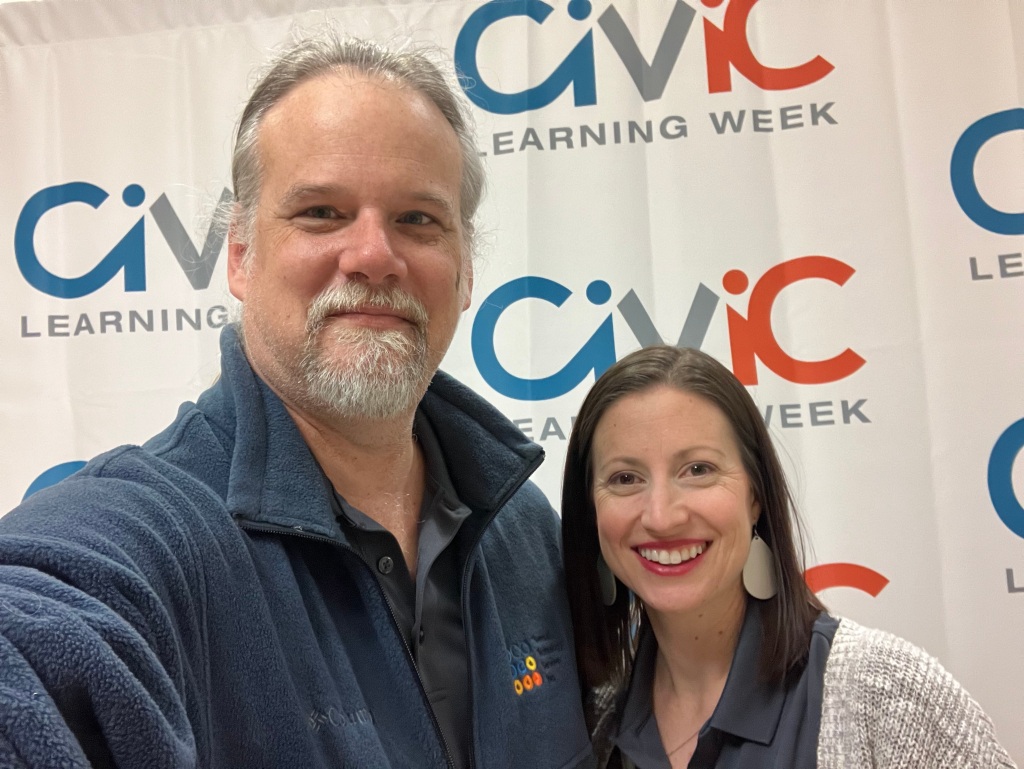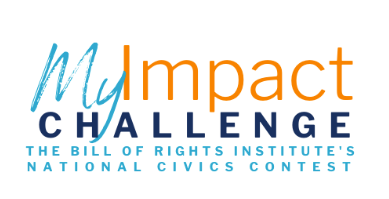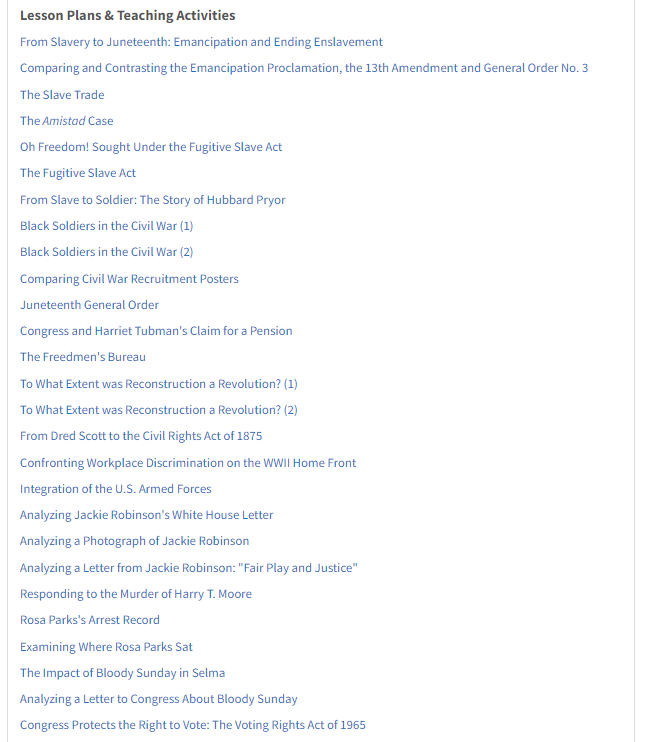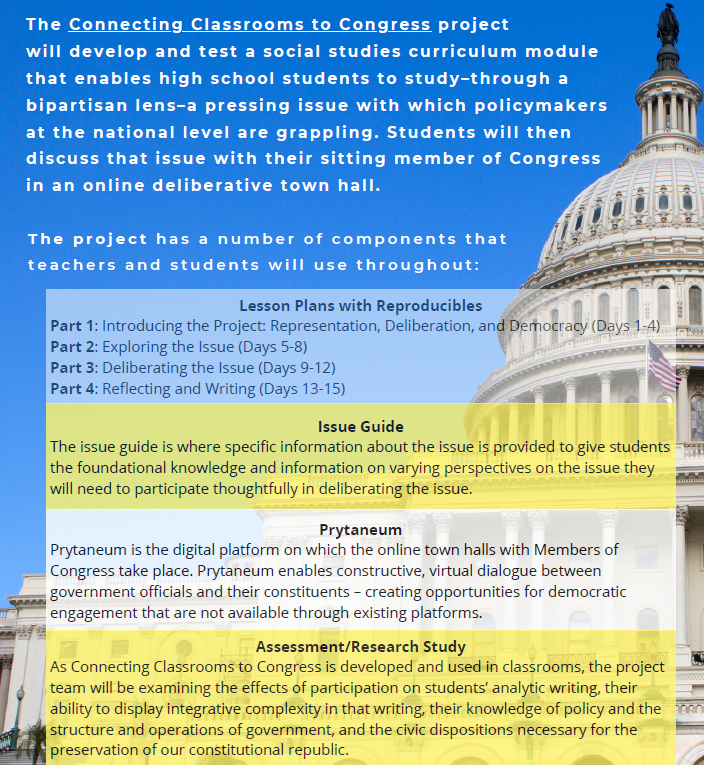Folks from your Lou Frey Institute and other civic learning organizations had the great pleasure to attend the Opening Forum at the National Archives in Washington, DC for the kickoff of the first national Civic Learning Week. It was an excellent start to the week, and it featured a fantastic and engaging collection of speakers and guests.
You can view the entire event below, but I though that it might be helpful to share some thoughts and reflections on each session, and consider what this first week should mean moving forward. So if you want to see what you missed, view the video embedded below (it starts around the 36th minute) and read on!
We began with a welcome from Debra Steidel Wall, Acting Archivist of the United States, and Louise Dube, Executive Director of iCivics. The point made by the Acting Archivist is so important: ‘Access to powerful documents has never been more necessary’, and we encourage you to check out the new resource developed by our friends at NARA, Civics for All of US.

We then have our first panel discussion. This panel, Civic Education for a Plural Yet Shared Nation, was moderated by Danielle Allen of Harvard University. It featured a discussion between Christina Grant, Superintendent of Washington DC Public Schools, Benjamin Klutsey of George Mason University, and Dan Vallone of More in Common USA.
One of my favorite things about this forum is that so many good points were made so clearly, and during this panel, the participants identified two needs: 1. leaders who can emphasize common grounds in civic education, and 2. more collaboration to find common ground. To paraphrase,‘In the doing we learn about each other and dissolve the myths about each other’. It was also pointed out that polarization seems worse because the most extreme on left and right are the most loud. But civics helps us understand we are not as polarized as we think. Differences in thought can be enriching, and diversity in ideology is important…but it requires a willingness to listen and accept that dissent is a GOOD thing! This requires an improved understanding of civil discourse as well (aside: Florida has included a significant module on civil discourse and civic engagement in its new Seal of Civic Excellence course!).
Our second session was a much-too-brief conversation between Danielle Allen and Republican Governor Christopher Sununu of New Hampshire on prioritizing civic learning.
I wish we had more time with the governor. He talked about the importance of Founding Principles and the role of local government and the local community, and the wonderful example of the New England Town Meeting as a form of civic participation and learning. He was also quite funny, honestly, and his time was too short!
After the governor left the stage, we got a very in depth, and honestly a bit depressing, panel about research, evidence, and the impact of civic learning.
This panel, moderated by Nick Capodice and Hannah McCarthy of the Civics101 podcast, shared research from Joe Kahne of CERG and Julia Kaufman of RAND discussing research around civic education and social studies. The RAND study was very disturbing though for those of us in the field perhaps not suprising.

In short, social studies continues to suffer from a lack of attention, and lack of resources, at the K-5 level. It gets deeper, and I enourage you to read their report here. The lack of quality resources is a HUGE problem. How do we build a consensus to address it??? Something to think about.
Relatedly, CERG looked at what is happening in the classrooms around tough topics and civil discourse.
The data concerning UNCIVIL discourse at the k-12 level is concerning, and the lack of professional development on how to conduct discussions of controversial issues is disturbing…but an opportunity for those of us in the field. Kahne pointed out that districts that make clear statements of support concerning civic education see improved outcomes and instruction and less problems in civic instruction and learning around difficult topics. Both researchers shared their thoughts on what needed to be done: a consensus on high quality resources and materials, and a need for professional development around leading discussions on controversial issues. Well said. How do we do them?
Following that sometimes depressing but always necessary discussion, Lee Glazer, director of the Museum Programs Division at NARA, talked some more about the importance of Civics for All of US. I want to reiterate again what an important resource this can be.
One of the most interesting and exciting panels followed. Hearing students talk about civic education and its impact on their learning and their lives was simply fantastic.
Moderated by Andrea Foggy-Paxton, Entrepeneur-Residence of Education Leaders of Color, it brought together parents and teachers Tanisha Carpenter, Amber Coleman-Mortley, and Neil Wrona to discuss civic education and engagement with students Roman Messali, Garvey Mortley, and Sarah Rivera. It was fantastic, and some key comments stuck with me:
-‘Civic experiences happen on a day to day basis. We engage in civic practice everyday.’
-‘Civics is a love language.’
-‘We have to support and appreciate our teachers for civic education to happen in this polarizing environment.’
-‘There is a lot of civic education happening in classrooms and schools that we don’t realize.’
-‘Those of us that are able to sit in a room with people that we don’t agree with, that we vehemently disagree with, and have civil conversations that get us to a place [of understanding] that is the power of civics.’
-‘Justice is heavily tied to civics. It is not separate.’
-‘Civics education is about problem solving.’
-‘Student engagement around issues that matter. Real people that can make a real difference.’
-‘Being able to have real conversations. Learn how to talk to people.’
-‘Analysis should be prioritized. Civics Ed is a right.’
There was so much more that was said, including the importance of student government. But I just want to thank these folks for sharing their thoughts, and for the Civic Learning Week team in bringing them in. It was fantastic.
The final panel session of the day was moderated by Crystal Patterson of Washington Media Group.
The discussion between Yuval Levin of the American Enterprise Institute, Miriam Vogel of EqualAI, and Sam Wineburg Stanford University dived deep into digital democracy, social media, artifical intelligence, and information literacy. Levin made a great point that sticks with me even now: ‘Educators also have to help people unlearn what is untrue.’ This is such a huge struggle, especially as many of the people we are trying to teach have no idea what they know is untrue. Levin went on to say that“Just being engaged, just participating is not enough. We have to have a set of skills for distinguishing truths from falsehood.” We MUST help students understand the civic system and civic life they live and engage in in order to innoculate them against conspiracy theory and falsehood. As Wineburg said, ‘Information literacy should be a non-partisan issue’, but sadly, it sometimes seems it is not. And the Internet can help make people more informed…or more confused. It was a really interesting conversation across all three panel participants, and I fear that we are not doing enough to support not just media literacy but information literacy.
We then had a video presentation from Brandon Short, with PGIM Real Estate and a former Giants and Panthers football player (GO PATS).
Short discussed the connection between civic engagement, civic learning, and the American Dream, and it was an inspiring and motivational few minutes!
Finally, we wrapped up with Shawn Healy of iCivics and Rajiv Vinnakota of the Institute for Citizens and Scholars.
Together, they summarized the three main themes of the opening forum:
1. Need to reimagine civic education to include civil discourse and the relationship challenge; Question how we help kids distinguish truth from falsehood (information literacy);use all spaces as civic spaces; 2.Local work as our work; lynchpin of civic progress; 3. Everyone is a civic teacher. We all help students grow in civic life.
As Healey said to close, civics should be in our bloodstream. Teachers want PD, so let’s give it to them. And we all want better civics, so let’s fund it!
Moving Forward
Civic Learning Week should be Civic Learning Year, all year, all day, every day. We have a responsibility to the next generation of participants in civic life to provide them with the tools and the resources to engage and to grow and to learn what it means to live up to our Founding Principles and to improve our communities. Sadly, I think we have been saying that since the Founding; while we have made progress in civic education, we must continue to grow and to ensure access and opportunity and strong foundation of knowledge. We look forwrad to working with colleagues in Florida and across the country in following up on the goals of Civic Learning Week. Because, after all, civics is a love language.



























